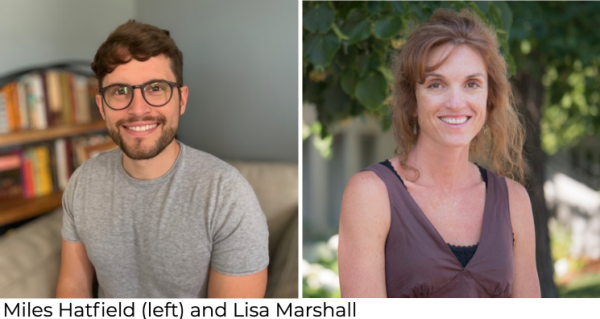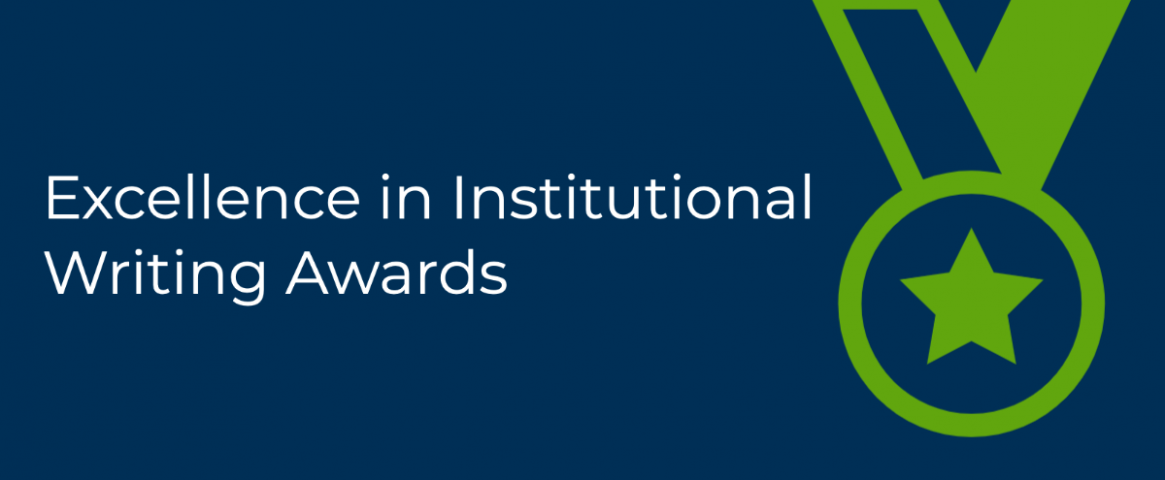Watch a video of our 2020 science writing award winners:
 We are pleased to announce the winners of the 2020 Excellence in Institutional Writing Awards, sponsored by the National Association of Science Writers:
We are pleased to announce the winners of the 2020 Excellence in Institutional Writing Awards, sponsored by the National Association of Science Writers:
· In the long-form category: “A Shot in the Dark: Chasing the Aurora From the World’s Northernmost Rocket Range,” by Miles Hatfield, NASA
· In the short-form category: “Healthy, Stress-Busting Fat Found Hidden in Dirt,” by Lisa Marshall, University of Colorado Boulder
The winner in each category will receive a cash prize of $2,000. Winners will be featured in a video showcase debuting on October 19 as part of ScienceWriters2020 core week.
Hatfield is a science writer in the heliophysics division at NASA’s Goddard Space Flight Center in Greenbelt, MD. Commenting on “A Shot in the Dark,” the judges stated: “Rarely do blog posts leave you on the edge of your seat, but that’s exactly what Miles Hatfield accomplishes in this eminently readable series. In riveting fashion, he describes the challenging data collection mission of an international group in the Svalbard archipelago, not only giving the reader a deep sense of the mission’s high stakes, but also revealing an amazing natural phenomenon that plays out at the poles of our planet without notice to most of the world. Miles executes scenes with suspense; the research group’s anticipation and pressure to succeed are palpable. It reads, at times, like science fiction, each section playing out like chapters in a book you don’t want to put down. An audio version of the story feels like listening to an audiobook. The animations and video help readers visualize the equipment and the compelling natural landscapes, while also introducing us to the characters who have come to these islands to watch Earth’s atmosphere literally drift into space.”
Marshall is senior science editor in the Office of Strategic Relations and Communications, University of Colorado Boulder. The judges wrote: “The piece contextualized the findings within the larger ‘hygiene hypothesis,’ and moved quickly into a clear description of how the ‘bacterium, Mycobacterium vaccae, quells stress-related disorders.’ The author explained the mechanism behind the stress-busting fat with a vivid metaphor in a single sentence, and kept the reader engaged with a narrative throughline in which microbes are our ‘old friends’ still here to help us. The author did all that while making this fascinating research accessible to the non-scientific public. The piece was both entertaining and effective—masterfully done!”
Honorable mention in the long-form category went to:
· “The Rapunzel Effect,” by Paul Hond, Columbia University
· “The Forgotten Female: How a Generation of Women Scientists Changed Our View of Evolution,” by Kathi Borgmann, Cornell Lab of Ornithology
· “A Green Idea to Power Rural Nepal,” by Carol Jackson, Emily Hanford, Karen Kemp, and Alison Jones, for the Duke University Sanford School of Policy
In the short-form category, honorable mention went to:
· “Cracking How ‘Water Bears’ Survive the Extremes,” by Mario Aguilera, University of California, San Diego
· “Earth’s Last Magnetic Field Reversal Took Far Longer Than Once Thought,” by Eric Hamilton, University of Wisconsin–Madison
The judging committee for the long-form entries consisted of Joseph Piergrossi (Technische Universität Dresden/Deutsches Elektronen-Synchrotron), Kelly Quigley (Scripps Research), Kelly April Tyrrell (University of Wisconsin–Madison), and Karen McNulty Walsh (Brookhaven National Laboratory). For the short-form entries, the judging committee consisted of Laura Arenschield (The Ohio State University), Miles Hatfield (NASA), and Patricia Koning (Lawrence Livermore National Laboratory). The Awards Committee was co-chaired by Alla Katsnelson (freelance) and Jyoti Madhusoodanan (freelance), and the Excellence in Institutional Writing Awards were coordinated by Awards Committee members Barbara Gastel (Texas A&M University) and Jill Sakai (freelance and University of Wisconsin–Madison).
First granted in 2018, the NASW Excellence in Institutional Writing Awards were established to recognize high-caliber publicly accessible science writing produced on behalf of an institution or other non-media organization.
Entries for next year's competition, for material published or broadcast in 2020, are due February 1, 2021. Entry forms will be available at www.nasw.org/excellence in December 2020.
The largest organization devoted to the professional interests of science writers, the National Association of Science Writers fosters the dissemination of accurate information regarding science through all media normally devoted to informing the public. Its 2,500 members include journalists, authors, editors, producers, public information officers, students and people who write and produce material intended to inform the public about science, health, engineering, and technology. For more information, visit www.nasw.org or write director@nasw.org.


